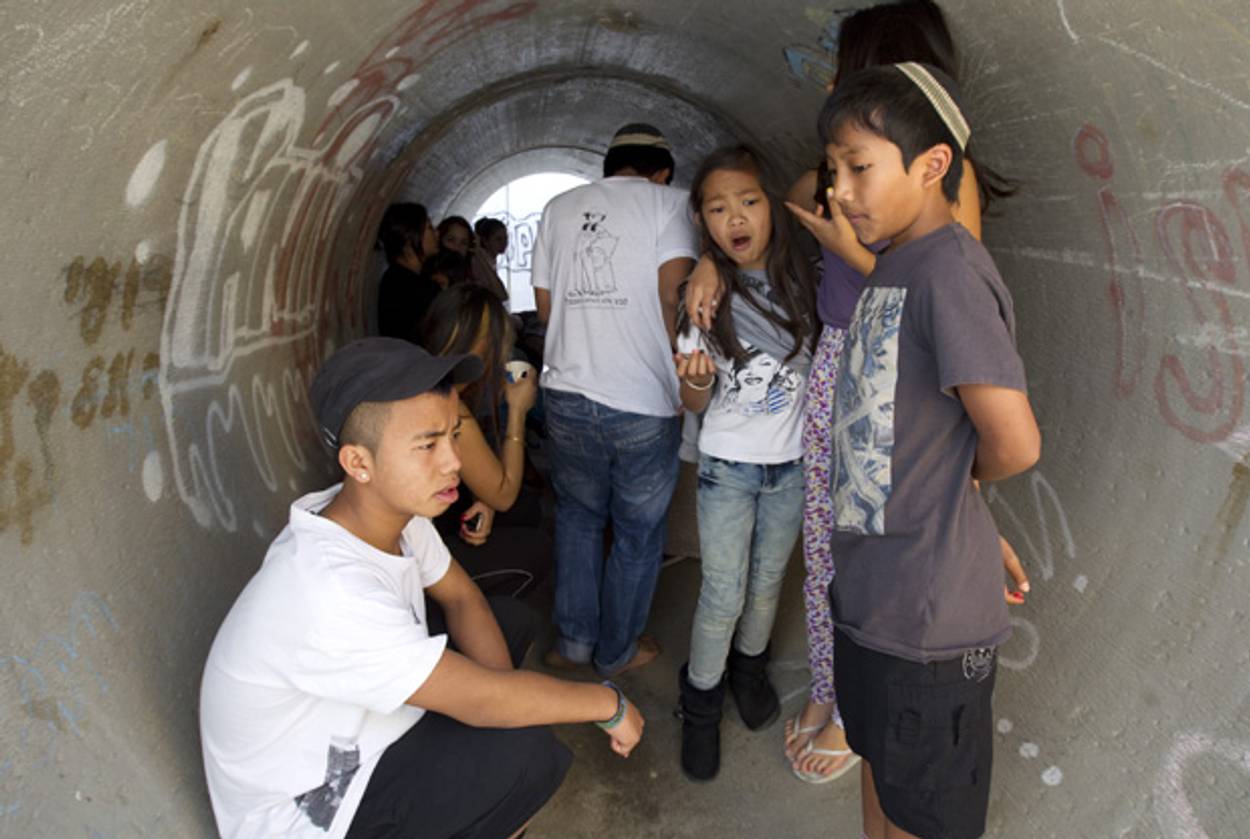Terrorist Killing Prompts Gaza Rocket Exchange
Hamas likely uninvolved in ongoing clash; one rocket hits empty school




This weekend’s battle between Gaza and southern Israel went about as “well” as such an exchange has ever gone, a fact at once encouraging and profoundly depressing. Zero Israeli casualties; extremely effective deployment of the Iron Dome missile-defense shield, which at one point had intercepted 27 of 32 rockets, and which ended up intercepting 44 rockets out of an approximate 160 fired; the deaths of 16 terrorists, including at least one crucial mastermind—and at a cost of only two civilian casualties. Mourn the dead Palestinian civilians—one was reportedly a 12-year-old—but also remember that it was the Israeli civilians who were actually being targeted—including the children that would have occupied the school in Be’er Sheva hit had they, along with 200,000 others, not spent yesterday indoors over precisely such fears.
The firing continued Monday with more than 30 rockets, with one hitting the city of Ashdod and another landing just 40 miles from Tel Aviv. Israel responded with new air strikes that killed two more terrorists and wounded a few dozen, including civilians.
Israel started the exchange in the sense of firing the first salvo. But that salvo was aimed at—and assassinated—a Popular Resistance Committees leader who bragged of kidnapping Gilad Shalit, allegedly planned last summer’s attack from Egypt that killed eight Israeli soldiers, and, according to Israel, was scheming another operation.
By last night, there were signs that things were quieting down, although the morning’s firing may belie that. Nobody in Gaza has pulled out any of the longer-range rockets capable of reaching Tel Aviv. Hamas has yet to take responsibility for any attacks.
In fact, there is evidence that Hamas, seeking greater legitimacy by ostensibly unifying with Fatah, did not want this escalation to happen. Prime Minister Netanyahu argued, “The fire from Gaza is an Iranian problem, not a Palestinian problem,” which would implicate the group Islamic Jihad, which continues to receive ample Iranian funding and support, rather than Hamas, which has been on the outs with Tehran for the past couple months—ever since abandoning Iran’s ally, Syria. Hamas is reportedly seeking a ceasefire through its new mediator of choice, Cairo. On the other hand, Hamas is the group most in control of Gaza, and additionally it is in Bibi’s interest—as we saw during last week’s AIPAC Conference—to make everything right now “an Iranian problem, not a Palestinian problem.”
“Israel—despite its mantra that because Hamas is sovereign in Gaza it is responsible for what goes on there—almost seems to understand,” report the indefatigable Avi Issacharoff and Amos Harel, “and has not bombed Hamas offices or installations. The IDF’s focus on hitting launchers on Sunday generated far fewer casualties than have been seen previously.” The new normal. Encouraging, and depressing.
Gaza Fighting Continues, Despite Truce Efforts [NYT]
Beyond the Gaza Headlines [Times of Israel]
This Round Will Likely Go to Israel [Haaretz]
PM Blames Iran for Gaza Rocket Fire [Arutz Sheva]
Marc Tracy is a staff writer at The New Republic, and was previously a staff writer at Tablet. He tweets @marcatracy.